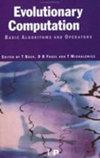Simple Hyper-Heuristics Control the Neighbourhood Size of Randomised Local Search Optimally for LeadingOnes*
IF 4.6
2区 计算机科学
Q2 COMPUTER SCIENCE, ARTIFICIAL INTELLIGENCE
引用次数: 31
Abstract
简单超启发式算法最优控制领先者随机局部搜索的邻域大小*
选择超启发式(HHs)是一种随机搜索方法,在优化过程中从一组低级启发式中选择并执行启发式。机器学习机制通常用于决定在每个决策步骤中应该应用哪种低级启发式。在这篇文章中,我们分析了复杂的学习机制是否总是HHs表现良好所必需的。为此,我们考虑了文献中最简单的HH,并严格分析了它们在LeadingOnes基准函数中的性能。我们的分析表明,标准的简单随机、置换、贪婪和随机梯度HHs没有表现出学习的迹象。虽然以前的HH并不试图从低水平启发式的过去表现中学习,但随机梯度HH背后的想法是,只要成功,就继续利用当前选择的启发式。因此,它嵌入了一个记忆最短的强化学习机制。然而,当扰动组合优化问题的合理解时,有希望的启发式在下一步中成功的概率相对较低。我们推广了“简单”随机梯度HH,因此可以在固定的时间段τ内测量成功,而不是单次迭代。对于LeadingOnes,我们证明了广义随机梯度(GRG)HH可以在运行过程中学会将随机局部搜索的邻域大小调整为最优性。因此,我们证明了它具有低级别启发式(具有不同邻域大小的随机局部搜索)以及低阶项所能达到的最佳性能。我们还证明了HH的性能随着可供选择的低级局部搜索启发式的数量的增加而提高。特别地,通过访问k个低级局部搜索启发式,它优于使用k个启发式的任何子集的最佳可能算法。最后,我们表明,如果考虑任何时间的性能(即,如果寻求近似解而不是精确解,则性能差距更大),GRG相对于使用标准比特突变的随机局部搜索和进化算法的优势会增加。实验分析证实了不同问题大小(高达n=108)的这些结果,并阐明了在各种情况下参数τ的最佳选择。
本文章由计算机程序翻译,如有差异,请以英文原文为准。
求助全文
约1分钟内获得全文
求助全文
来源期刊

Evolutionary Computation
工程技术-计算机:理论方法
CiteScore
6.40
自引率
1.50%
发文量
20
审稿时长
3 months
期刊介绍:
Evolutionary Computation is a leading journal in its field. It provides an international forum for facilitating and enhancing the exchange of information among researchers involved in both the theoretical and practical aspects of computational systems drawing their inspiration from nature, with particular emphasis on evolutionary models of computation such as genetic algorithms, evolutionary strategies, classifier systems, evolutionary programming, and genetic programming. It welcomes articles from related fields such as swarm intelligence (e.g. Ant Colony Optimization and Particle Swarm Optimization), and other nature-inspired computation paradigms (e.g. Artificial Immune Systems). As well as publishing articles describing theoretical and/or experimental work, the journal also welcomes application-focused papers describing breakthrough results in an application domain or methodological papers where the specificities of the real-world problem led to significant algorithmic improvements that could possibly be generalized to other areas.
 求助内容:
求助内容: 应助结果提醒方式:
应助结果提醒方式:


